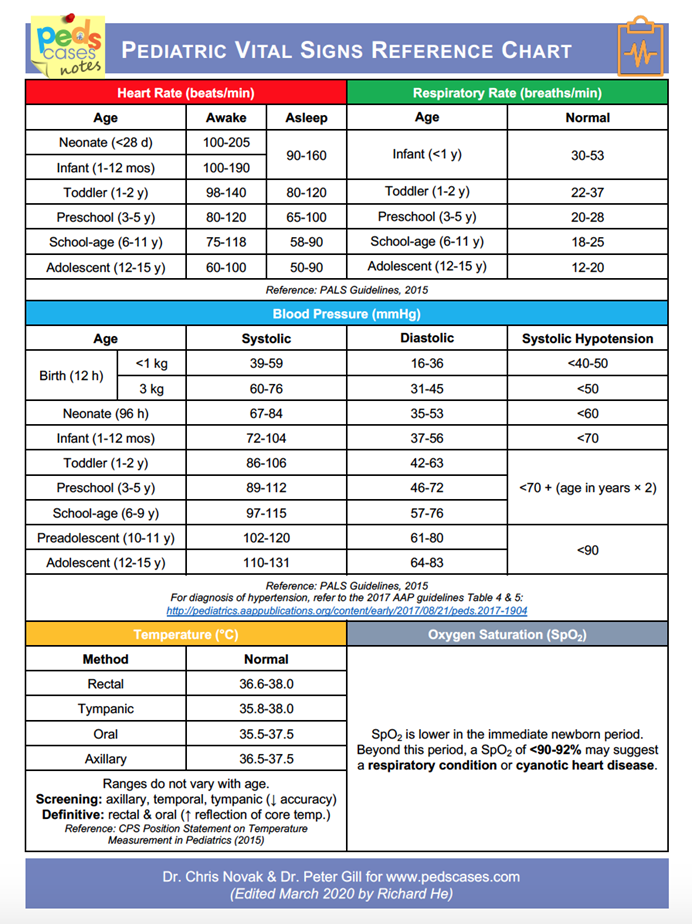A nurse is collecting data from a 4-year-old child. Which of the following findings should the nurse expect?
Heart rate 110/min
Capillary refill greater than 3 seconds
Weight gain of 0.9 kg (2 lb) in a year
Respiratory rate 32/min
The Correct Answer is A
A. Heart rate 110/min: A heart rate of 110 beats per minute is within the normal range for a 4-year-old child. The typical heart rate for this age is between 80 to 120 beats per minute.
B. Capillary refill greater than 3 seconds: Capillary refill time should be less than 2 seconds in a healthy child. A refill time greater than 3 seconds may indicate poor perfusion or dehydration, which is abnormal.
C. Weight gain of 0.9 kg (2 lb) in a year: A weight gain of 2 pounds in a year is below the expected range for a 4-year-old. Children in this age group typically gain around 4-5 pounds per year as they grow.
D. Respiratory rate 32/min: The normal respiratory rate for a 4-year-old child is typically between 20 to 30 breaths per minute. A rate of 32/min is slightly elevated and may indicate respiratory distress or other issues.

Nursing Test Bank
Naxlex Comprehensive Predictor Exams
Related Questions
Correct Answer is D
Explanation
A. "Lice can jump from one child to another." Lice do not jump or fly; they crawl from one person to another through direct contact or by sharing personal items like hats, combs, or bedding. This statement is incorrect.
B. "Washing your child's hair daily will prevent lice." Regular hair washing does not prevent lice infestations. Lice infest clean and dirty hair alike, and prevention involves avoiding direct head-to-head contact and sharing personal items.
C. "Lice do not survive away from the host." While lice need a human host to survive, they can live for up to 1-2 days away from the host on objects like bedding, hats, or brushes. This statement is not completely accurate.
D. "Encourage your child to avoid sharing hats with other children." This is correct advice to prevent the spread of lice. Sharing hats or other personal items can facilitate the transmission of lice from one child to another.
Correct Answer is ["3.8"]
Explanation
Convert the child’s weight to kg:
22 lb ×1kg/2.2lb = 10 kg
Calculate the daily dose:
1.5 mg/kg/day × 10 kg=15mg/day
Divide the total daily dose by the number of doses per day (every 6 hours):
15mg/day ÷ 4doses/day =3.75mg/dose
Convert the dose to mL using the concentration:
3.75mg × 1 mL/1 mg = 3.75 mL
Round to the nearest tenth:
3.75mL≈ 3.8 mL
Answer: The nurse should administer 3.8 mL per dose.
Whether you are a student looking to ace your exams or a practicing nurse seeking to enhance your expertise , our nursing education contents will empower you with the confidence and competence to make a difference in the lives of patients and become a respected leader in the healthcare field.
Visit Naxlex, invest in your future and unlock endless possibilities with our unparalleled nursing education contents today
Report Wrong Answer on the Current Question
Do you disagree with the answer? If yes, what is your expected answer? Explain.
Kindly be descriptive with the issue you are facing.
